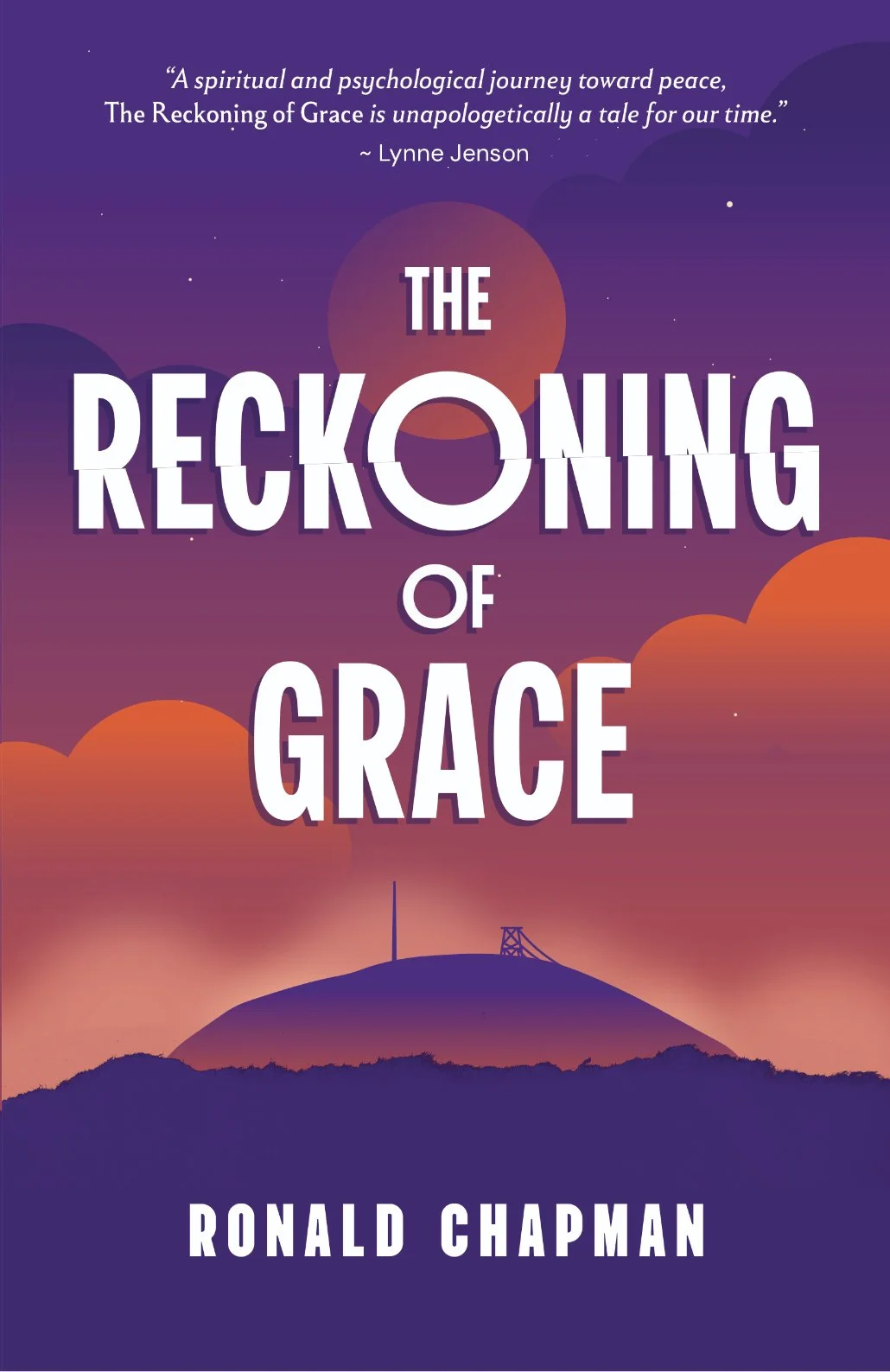A Personal Account of The Dark Side of Grace
/
“Damn it, Ron, we can’t just pick the pleasant stuff and call it Grace!
If there is Grace, it has to include the ugly stuff.”
~Mike M., A Member of Alcoholics Anonymous
“Everything belongs.”
*****
Ever since correspondence with a serial killer transformed my views on the world, and after he was put to death, I began writing about inherent innocence, a natural state that is within everyone. That was the launching point for my novel, A Killer’s Grace. It was also the basis for workshops I began to deliver for those in recovery and beyond those rooms in order to explore that innocence with others. Some of those interactions were quite profound, and just as transformational to my own understanding of the world.
It turns out that everyone really is doing the best they are able. While someone may be mentally ill, delusional, ignorant or ill-informed, my long-time spiritual mentor, who I appreciatively call Master Samwise, taught over and over again that when we look closely enough we will see that everything is unfolding perfectly given the time, place, and circumstances of the moment.
Just to be clear, Master Samwise also was my long-time sponsor in recovery from alcoholism, which began in 1985. He was instrumental not just in my growth and development, but my own transformation. It was that work that propelled me to develop Progressive Recovery as a practice, and to write the book, Progressive Recovery Through the Twelve Steps: Emotionally Sober for Life.
Regardless, there are always three great themes of pushback I encounter whenever exploring this space with others.
The most common is someone giving me an example of something heinous or tragic and asking me to explain how it could possibly be included within Grace. The second most common is someone telling me they have seen true “evil” and that if I saw that I’d have to change my mind about these ideas. The third angle is when someone jumps to conclude that I’m saying we take no action. Nothing could be further from the truth.
I’ve written often on these, including these two, so I won’t repeat those explorations.
Instead, I want to share why I wrote the newest novel, The Dark Side of Grace. It is the second in what will be five books which I broadly refer to as The Chronicles of Grace. Each involves a recovering alcoholic, Kevin Pitcairn, and his beloved Maria Elena, who has her own difficult history.
While these stories are not biography, they are much informed by my own lived experience, in this case and in the exploration of Post Traumatic Growth. Yes! The same tragedies that can wreck people lives can transform them. Yet, there is so very much darkness and ugliness to explore.
You see, the only way to understand and embrace that everything belongs within the realm of Grace, one has to go deep into the ugliness in order for illumination to come.
It turns out Arlo Guthrie was right, “You can’t have light without a dark to stick it in.”
Here’s what you need to know though. Several great teachers, spiritual advisors and mentors showed me how to hold space and bear witness to great pain and great devastation. What keeps us from exploring this dark landscape is the heartache and suffering we must necessarily experience and engage. It is terribly uncomfortable. No wonder we balk. However, nothing transformational ever comes when we are comfortable. We need the disruption to blast us past our lack of understanding, and our fixed ideas.
Why explore the dark side of Grace? It is the only path into Light.
More importantly, hurt people hurt people. When we have not reconciled our own woundedness, we inflict it unknowingly and unconsciously upon others and the world.
As for me, there are more stories to tell because there is a secret in this fiction I write. Every single character and every single part of the plot is informed by a real person or a real circumstance. They are each too good to not pass on to others. (For those not in recovery from substance abuse, passing it on is a foundational principle.)
Sometimes, the only way to approach a deep, dark challenge is through a story. Sometimes fiction is more compelling. Rest assured though, this fiction is informed by the real world in which we are immersed.
Seeing True in Reality and In Practice™
First, darkness and ugliness will break our hearts.
Then, when we engage, it will break our hearts open.
Through this we will be transformed.
That’s how to change the world.
Out of darkness … light.
Out of tragedy … transformation.














